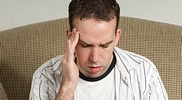<!-- @page { size: 8.5in 11in; margin: 0.79in } P { margin-bottom: 0.08in } -->
Doctors claim that children also suffer from the same sleeping disorders that adults commonly experience such as insomnia, sleep apnea, as well as narcolepsy. However, sleep disorders are quite hard to determine or diagnose in children, for they are always changing and are less expressive or communicative. With this, diagnosing what type of sleeping disorder and the nature is not really that easy.
Below are some of the common sleeping problems that children, like adults, suffer from:
Common to children who are three to seven years old, night terrors may awaken children from sleep, exhibiting signs such as extreme fright, screaming, as well as increased heart rate and breathing pattern.
For young children, bed wetting is one very common sleeping problem. This may due to unusual sleeping pattern that does not allow the child to receive the message to empty his or her bladder and having an immature bladder.
A sleep disorder that affects three percent of children in worldwide population, obstructive sleep apnea basically occurs due to tonsil enlargement, thus, resulting to an obstruction to the inflow and outflow of air when breathing.
To give you a clear understanding of how children are diagnosed with pediatric sleep disorder, the following are some helpful guide on how to diagnose sleep disorder among children:
If you think that your child is having sleeping issues, you can opt to enroll him or her in a pediatric sleep study. Almost all pediatric hospitals have this kind of service, wherein the doctors will have your child sleep in the hospital for a few days in order to diagnose and monitor his or her sleep cycles.
For you to monitor your child's sleep schedule, you can try jotting down notes on the time you put him or her on bed as well as the time he or she wakes up. You also need to keep track of the number of times your kid wakes up at night. These notes will surely help the doctor in diagnosing your child's sleep problem.
Aside from taking notes on your child's night time sleeping pattern, you also need to be observant on his or her napping habit. Take note if the naps are either in a regular or impromptu manner. This information is also important for your kid's doctor to know.
Sleepwalking is also good sign that your kid may be suffering from a sleeping disorder. There is a good chance that your kid is sleepwalking if you frequently find him or her sleeping in different rooms or positions in the morning. Another good sign is if there are items inside your house that are misplaced when you wake up in the morning. Take note of these and inform your child's doctor about it.
You can change your child's daily diet to see if it has a good effect on their sleeping condition. As some doctors say that a healthy diet is a good all-natural sleeping aid, you may opt to include lots of veggies and fruits in your kid's daily diet. Also, consulting a pediatrician about your child's diet is a good option.



